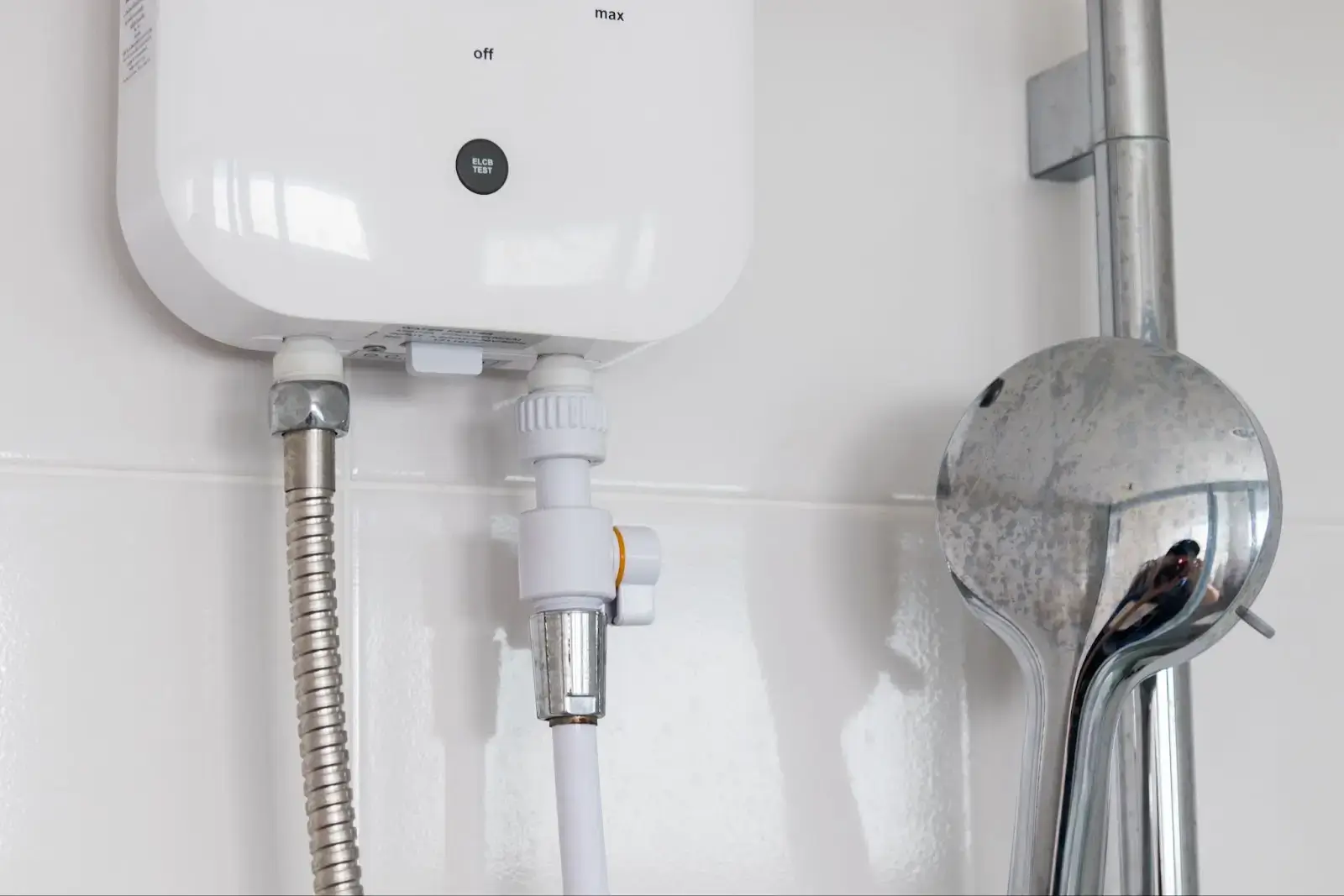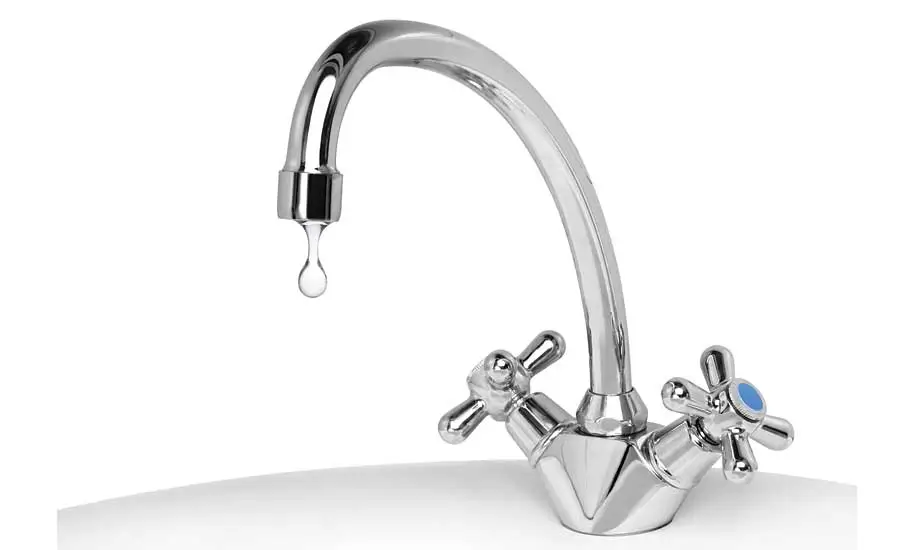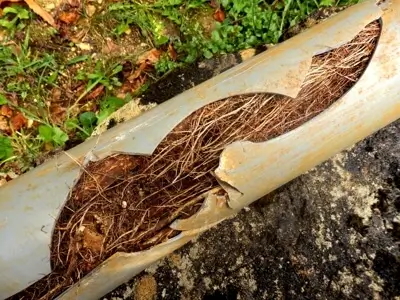Is your furnace producing strange odors? Is the burning smell coming from your furnace keeping you up at night? Don't panic if there are furnace smells circulating in your home. It is completely normal to smell odors as a byproduct of your home heating system. If your furnace smells like burning, possible causes range from:
- Harmless dust buildups
to - Internal components malfunctioning (like a compromised heat exchanger)
A heating system has various in and outs that debris may enter and settle into. An old furnace filter can fill up quickly when it goes for long periods without running. Sometimes, a furnace smells like burning when its air filters aren't regularly maintained.
However, there are some odors you should pay attention to, especially if the smell persists. A furnace smell continues for a few hours when underlying issues are causing them.
Is a Burning Smell From Furnace Normal?
We don't need artificial heating all year round, and homes throughout Portland typically keep their furnace dormant during summer. Burning smells aren't always hazardous or cause immediate concern, especially if you only started it back up after a long time. Excessive dust buildup can collect on your furnace when they aren't utilized for long periods, leading to burning smells upon the first reignition of your furnace. If the smell persists, you should call an HVAC technician to run an inspection.
Regardless of what your furnace smells like, you are breathing in contaminated airflow if an odor comes from your furnace. Direct exposure to high amounts of pollutants, like burning plastic, can lead to allergies and health issues. Homeowners more sensitive to furnace smells and prone to developing allergies are advised to wear masks while turning their furnace on for the first time. If your furnace smells like it is burning the first time you light it up, wait for a bit of time to pass.
However, call an HVAC technician immediately if the smell doesn't disappear or worsens over time.
Contaminated Airflow
When dust burns, it produces different pollutants and may get into heat registers. A burning dust smell from the accumulated dust in your furnace is a regular occurrence and isn't a cause for concern. However, another foreign object getting caught anywhere in the process of heating air may produce worrisome smells like burning plastic. Not only will contaminants buildup within your furnace's pipes, vents, or thermocouple hinder functions, but the different pollutants within the heat exchanger can build up in your home's ambient air and affect your home's indoor air quality. A natural gas smell isn't only bothersome. It can pose a real safety hazard to your household.
Indoor Air Quality (IAQ)
The quality of your air matters because, according to more and more studies, they are amongst the leading causes of respiratory issues nationwide. Not enough Americans are aware of indoor pollution's various hazards to our health. In recent years, more efforts have been made to raise awareness of the importance of your home and workplace's indoor air quality. The general consensus always leads to the religious routine cleaning of all air handlers (e.g., air conditioning systems, humidifiers, and furnaces), which facilitate airflow and have good ventilation systems for enclosed spaces.
Common Causes for Different Furnace Smells
Any furnace smell indicates impurities in its systems. The intensity of odors and how long they last should be observed closely, especially if your oil furnace smells like burning.
If your gas furnace smells like an electrical burning smell, you should consider this a serious problem and request immediate assistance from an HVAC professional or your gas company. An electrical burning smell may involve an electrical problem directly or indirectly related to your furnace. You should turn off all your electrical appliances and vacate the premises as soon as you sense an electrical burning smell in the air if your furnace heats your home through a combustion process that involves direct ignition. In this situation, waiting too long may be too dangerous before calling experts for help.
If your electric or gas furnace smells like burning oil or hot plastic, your blower motor may be overheating. An overheating blower motor may stall your furnace immediately, spontaneously combust, and require a more costly system overhaul. Call an HVAC technician to conduct a furnace repair and run a thorough inspection.
Still, not all burning smells warrant emergency assistance or evacuation. Here are some less worrisome but common causes of a furnace producing a burning smell.
Dust Burns
As discussed, it is normal for furnaces that lay dormant during hotter weather to produce a burning smell when they are switched on for the first time. The smell may come from the thermocouple or the evaporator coil. While initial ignition may cause the smell of burning dust, any odor that lasts over thirty minutes should catch your attention. Burning dust shouldn't take more than half an hour to burn off. If it lasts too long or smells like burning plastic instead of paper, it may indicate a clogged filter or contamination somewhere in your furnace.
What Your Furnace Smells Like Burning Dust?
After reading "burning dust smell" for the nth time in this article alone, you might still not be sure what the smell of burning dust even smells like. Unfortunately, Google only has an "image" result page and no "scent" result page. The best we can do to describe it through words is it smells like burning old books. It smells like burning, but it also smells "old."
When your heater smells like a burning metallic smell, rotten egg smell, or burning plastic, it may indicate worse problems than just dust burning.
Fuel Emissions
A more traditional furnace (e.g., gas or oil) may have inferior exhaust pipes or compromised heating components. When operating with a cracked heat exchanger, a gas furnace smells like burning or smoke-belching. It could also smell like burning plastic if your pipes are made of PVC instead of iron or clay. Any cracks, abrasions, or holes on your heat exchanger may cause a leak on either end.
A cracked heat exchanger leads to inefficient fuel injection and improper disposal of its emissions. Fuel emissions must have a proper avenue to exit your home, preventing toxic fumes from entering your breathing space.
What Carbon Monoxide Smells Like?
A carbon monoxide leak is extremely dangerous due to the absence of any noticeable odors, such as a strong burning smell. The presence of carbon monoxide in your home results in air that is chappy or hard to breathe.
However, if you aren't familiar with what air contaminated with carbon monoxide feels like, you won't be able to tell just by a slight burning smell and might pass out before figuring it out. You should install carbon monoxide detectors near heat registers and air vents.
Gas Leak
Unlike a furnace leaking carbon monoxide, you can smell a natural gas leak coming from your furnace in the air. Natural gas has artificial scents, resembling rotten eggs, incorporated into it to help alert homeowners when there's a leak in their furnace's heat exchanger or gas line. A gas leak is purposely altered to smell like rotten eggs because its leak from your furnace causes more immediate dangers due to its combustive properties, which is an immediate safety hazard.
All furnace installations come with a safety feature called flame sensors to help control ignition when there's a surplus of gas flow from the furnace. However, your furnace could produce a burning smell when the gas leak diminishes the flow into its pilot light. Insufficient gas making it to the pilot light may result in a smaller flame hindering proper ignition, leading to residual gas settling in your thermocouple and causing a burning smell. If your furnace smells like burning without a lit pilot light, there's most likely a gas leak.
What Gas Leaks Smell Like?
Don't expect a gas smell to dominate your air ducts. They are altered to smell like rotten eggs to catch your attention more quickly. A furnace smell that reeks of rotten eggs or similar decomposition may alert you of the furnace leak much faster, as the burning smell of gas isn't always attention-catching.
If you smell rotten eggs and other funky odors but regularly maintain your furnace, it may be the fault of other air handlers in your home.
Common Heating and Cooling System Smells
A heating system or air conditioning that utilizes ductwork for air distribution might also have its outdoor unit near things that produce odors. If you live near sewer lines, campgrounds, or factories, ensure you don't install the outdoor units of your HVAC system near them.
These are the HVAC system outdoor components:
- Condenser (heating system)
- Compressor (heating and cooling system)
An inexperienced HVAC technician might not consider your surrounding environment well enough. The installation of your HVAC system is just as important as its maintenance. You might keep calling an emergency hotline for a "burning smell from furnace" concern when you are really suffering from an improperly installed air conditioning system. Even laying down air ducts in areas of your home that interfere with airflow can cause issues.
If your home is near sewer lines, your furnace or HVAC system might absorb contaminated air, resulting in various furnace smells. However, if your furnace smells like sewage without any outdoors, the sewer leak might be within your home. A dry sewer trap may also produce foul smells. To solve the issue, try pouring water down your sink, shower, or floor drain. If that doesn't do the job, call in a plumber for your concerns.
Remember that a sewer leak, inside or outside your home, can clog your air filters. The foul smells contain different pollutants air filters must keep out, and too much too fast can be overwhelming.
Dirty Air Filter
All mechanical air handlers have at least one air filter. If you didn't know, your furnace filter prevents any foul smells from coming from your furnace and making it into your living spaces. Just like any heating air filter would. Any system heating air requires better filtration to prevent a burning smell or harboring any unwelcome guests.
The humid and dark areas within its internal components make more suitable environments for mold and mildew to thrive. Since the process of heating air involves airflow traveling through ductwork, contamination may spread more quickly and extensively.
Dirty Ductwork
Your ductwork is essential in the entire heating air process. Flimsy or dirty ductwork can quickly lead to contamination and deterioration. Your indoor air quality will be compromised, leading to health hazards and discomfort. Any heating and cooling system that isn't a furnace producing a burning plastic or gas smell is not typical. There may be foreign objects within your ductwork or an undiagnosed electrical problem producing fumes seeping into your air vents.
When It's Time to Call an HVAC Professional
Regular maintenance is a must with all furnace types. Furnace maintenance can be the most cost-effective measure you can take against unnecessary remediation costs.
If you think an electrical furnace smells better with poor maintenance, think again. All HVAC equipment requires regular maintenance to remedy any minor issues and prevent more significant ones from troubling you in the future.
Sunset Heating and Cooling Electrical
An improper installation and improper maintenance might cost you more in the long run. Don't settle for less in Oregon!
Sunset Heating and Cooling Electrical is an HVAC company you can trust for furnace repair and maintenance. If you are ready for an upgrade, we can help you with that! Reach out to our team of experts for furnace replacement.







